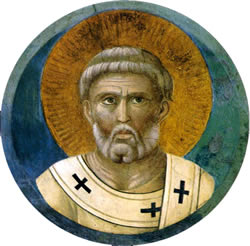Ephesians
 The Epistle to the Ephesians, also called the Letter to the Ephesians and often shortened to Ephesians, is the tenth book of the New Testament. Its authorship has traditionally been attributed to Paul the Apostle but starting in 1792, this has been challenged as Deutero-Pauline, that is, written in Paul's name by a later author strongly influenced by Paul's thought, probably "by a loyal disciple to sum up Paul's teaching and to apply it to a new situation fifteen to twenty-five years after the Apostle's death".
The Epistle to the Ephesians, also called the Letter to the Ephesians and often shortened to Ephesians, is the tenth book of the New Testament. Its authorship has traditionally been attributed to Paul the Apostle but starting in 1792, this has been challenged as Deutero-Pauline, that is, written in Paul's name by a later author strongly influenced by Paul's thought, probably "by a loyal disciple to sum up Paul's teaching and to apply it to a new situation fifteen to twenty-five years after the Apostle's death".
A major theme in Ephesians is the keeping of Christ's body (that is, the Church) pure and holy.
Therefore be imitators of God, as beloved children. And walk in love, as Christ loved us and gave himself up for us, a fragrant offering and sacrifice to God.
In the second part of the letter, Ephesians 4:17-6:20, the author gives practical advice in how to live a holy, pure, and Christ-inspired lifestyle.
According to tradition, the Apostle Paul wrote the letter while he was in prison in Rome (around AD 62). This would be about the same time as the Epistle to the Colossians (which in many points it resembles) and the Epistle to Philemon. However, many critical scholars have questioned the authorship of the letter and suggest that it may have been written between AD 80 and 100.
The first verse in the letter identifies Paul as its author. While early lists of New Testament books, including the Muratorian fragment and possibly Marcion's canon (if it is to be equated with the Epistle to the Laodiceans), attribute the letter to Paul, more recently there have been challenges to Pauline authorship on the basis of the letter's characteristically non-Pauline syntax, terminology, and eschatology.
There are four main theories in biblical scholarship that address the question of Pauline authorship.
- The traditional view is that the epistle is written by Paul.
- A second position suggests that Ephesians was dictated by Paul with interpolations from another author.
- Currently, many critical scholars think it improbable that Paul authored Ephesians.
- Still other scholars suggest there is a lack of conclusive evidence.
While most English translations indicate that the letter was addressed to "the saints who are in Ephesus" (1:1), the words "in Ephesus" do not appear in the best and earliest manuscripts of the letter, leading most textual critics to regard the words as an interpolation. This lack of any internal references to Ephesus in the early manuscripts may have led Marcion, a second-century heresiarch who created the first New Testament canon, to believe that the letter was actually addressed to the church at Laodicea, for details see Epistle to the Laodiceans.
Furthermore, if Paul is regarded as the author, the impersonal character of the letter, which lacks personal greetings or any indication that the author has personal knowledge of his recipients, is incongruous with the account in Acts of Paul staying more than two years in Ephesus. For these reasons, most regard Ephesians to be a circular letter intended for many churches. The Jerusalem Bible notes that some critics think the words "who are ..." would have been followed by a blank to be filled in with the name of "whichever church was being sent the letter".
If Paul was the author of the letter, then it was probably written from Rome during Paul's first imprisonment (3:1; 4:1; 6:20), and probably soon after his arrival there in the year 62, four years after he had parted with the Ephesian elders at Miletus. However, scholars who dispute Paul's authorship date the letter to between 70 and 80 AD. In the latter case, the possible location of the authorship could have been within the church of Ephesus itself. Ignatius of Antioch himself seemed to be very well versed in the epistle to the Ephesians, and mirrors many of his own thoughts in his own epistle to the Ephesians.
View the Chapters of Ephesians:
1
2
3
4
5
6